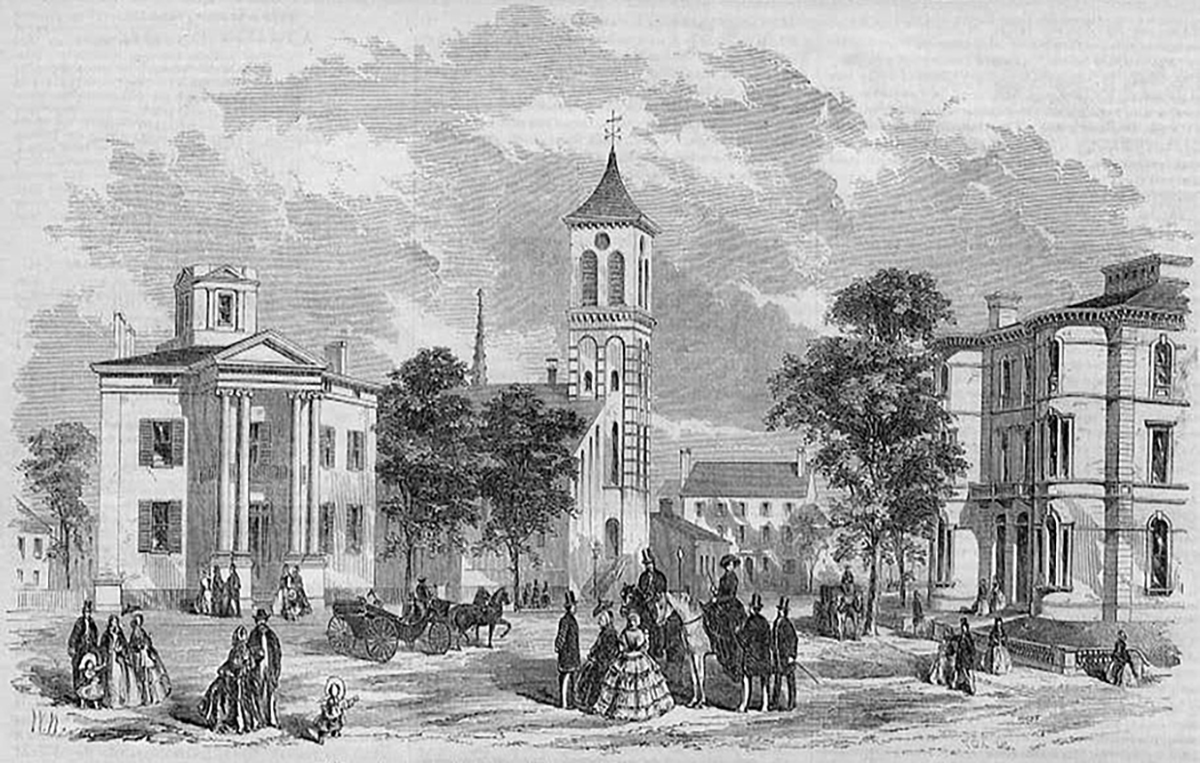Throwback Thursday: Maine Becomes the First State to Outlaw Alcohol

1857 Portland, Maine wood engraving via Wikimedia/Creative Commons
Maine has the unique honor of being the home state to Prohibition.
It was born there on June 2, 1851 when the state enacted the first-ever law in the country to prohibit alcohol. Aside from drops reserved for medicinal, mechanical, or manufacturing purposes, Maine was the first official dry state. This was possible thanks, in part, to Portland Mayor Neal Dow.
Dow was a lifelong, steadfast teetotaler. According to the New England Historical Society, Dow cofounded the Maine Temperance Society when he was 23. He was so intense that he later acquired the nickname “the Father of Prohibition.” Dow’s efforts culminated when he worked to pass that 1851 law prohibiting the manufacture and sale of liquor, otherwise known as the “Maine Law.”
His crowning achievement did not go over well with Mainers. They still drank, of course, concocting moonshine, hard cider, and other beverages in their homes.
Dow was a vocal opponent to the country’s influx of immigrants, who in his opinion, drank far too much. Those foreigners (mostly Irish ones) fought back on June 2, 1855—four years after the passage of the Maine law. They angrily gathered outside Portland City Hall after reports that the mayor was storing alcohol in City Hall vaults. Then the Portland Rum Riot ensued.
The “Maine Law” allowed for specific individuals to buy alcohol for medicinal purposes. Dow, who was not an appointed purchaser, broke his own law by buying alcohol on the city’s behalf to distribute to doctors in the area. The alcohol he bought was put in the rumored storage vault in City Hall.
An estimated 3,000 impassioned citizens circled the building, banging on the doors and throwing rocks. Bottles of alcohol in the storage area were broken. Dow, who was outraged, called in the militia and ordered them to shoot at the crowd. One man was killed and seven were injured.
While Prohibition was obviously proving not to fare well for the state of Maine, 65 years later, the 18th Amendment would be signed into law, prohibiting alcohol throughout the country. The “Maine Law” remained mostly in effect until the national repeal of Prohibition with the 21st Amendment in 1933.
Dow, on the other hand, was never re-elected to office. He did go on to serve in the Civil War at the ripe old age of 57. Dow lived to be 93.

Stone-faced Neal Dow himself / Photo via Wikimedia/Creative Commons


